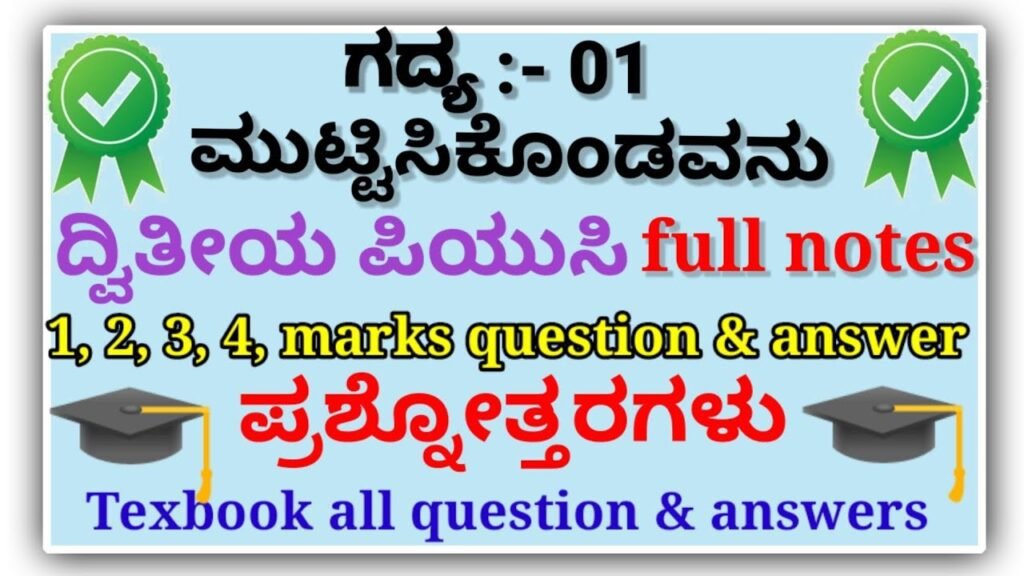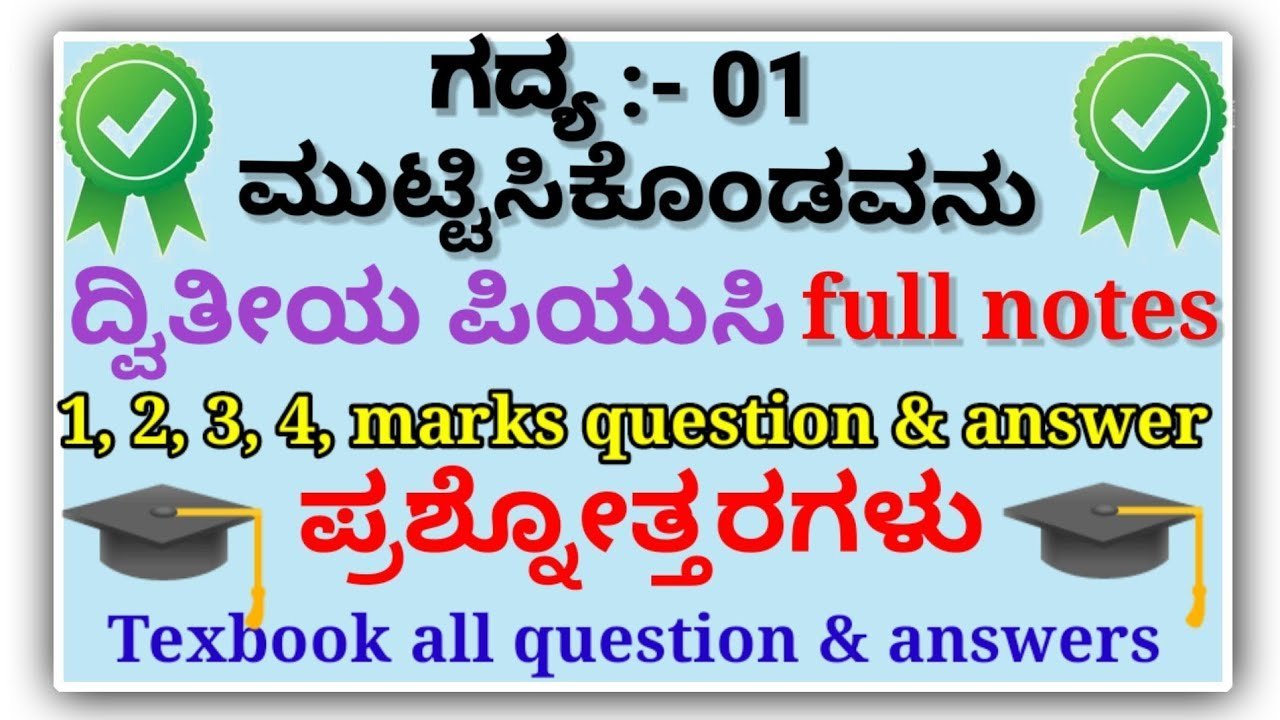
Introduction: The Importance of 2nd PUC Kannada Notes
2nd PUC Kannada Notes Kannada, as a subject in the 2nd PUC (Pre-University Course), plays a crucial role in the educational journey of students in Karnataka. Mastering Kannada can be a gateway to understanding the rich cultural and literary heritage of the region. In this extensive guide, we will delve deep into the 2nd PUC Kannada notes, offering insights, summaries, and detailed analyses to help you excel in your exams.
Chapter 1: Understanding Kannada Literature 2nd PUC Kannada Notes
- Historical Context and Evolution
- Trace the evolution of Kannada literature from ancient to modern times.
- Highlight significant literary movements and their impacts.
- Key Literary Figures
- Discuss prominent Kannada writers and poets.
- Analyze their contributions and literary styles.
- Major Works and Their Themes
- Summarize important Kannada literary works.
- Explore recurring themes and their relevance.
Chapter 2: Prose and Poetry – A Deep Dive
- Detailed Summaries of Prose Texts
- Provide comprehensive summaries of prescribed prose texts.
- Highlight key messages and lessons.
- Analysis of Poems
- Break down the themes, styles, and techniques used in the poems.
- Discuss the significance of each poem in the curriculum.
- Character Sketches and Plot Analysis
- Offer detailed character sketches for major prose texts.
- Analyze plots and subplots for a better understanding.
Chapter 3: Grammar and Composition
- Grammar Rules and Their Applications 2nd PUC Kannada Notes
- Cover essential grammar rules with examples.
- Provide exercises to practice and reinforce grammar skills.
- Essay Writing Tips
- Offer guidelines for writing compelling essays in Kannada.
- Provide sample essays on common topics.
- Letter Writing Formats
- Discuss formal and informal letter-writing formats.
- Include sample letters for practice.
Chapter 4: Exam Preparation Strategies
- Effective Study Techniques 2nd PUC Kannada Notes
- Share proven study techniques tailored for Kannada.
- Discuss time management and effective note-taking strategies.
- Sample Question Papers
- Include previous years’ question papers with solutions.
- Provide model question papers for practice.
- Tips for Scoring High Marks
- Offer tips and tricks for excelling in Kannada exams.
- Discuss common mistakes to avoid.
Chapter 5: Cultural and Literary Significance 2nd PUC Kannada Notes
- The Role of Kannada in Karnataka’s Culture
- Explore the cultural significance of Kannada literature.
- Discuss how literature reflects and influences society.
- Literary Festivals and Events
- Highlight major literary festivals in Karnataka.
- Discuss the role of these events in promoting Kannada literature.
- Modern Kannada Literature
- Explore contemporary Kannada writers and their works.
- Discuss the future of Kannada literature in a globalized world.
Chapter 6: Additional Resources and Further Reading 2nd PUC Kannada Notes
- Recommended Books and Authors
- Provide a list of recommended books for further reading.
- Highlight authors who have significantly contributed to Kannada literature.
- Online Resources and E-Learning Platforms
- Discuss online platforms offering Kannada literature resources.
- Provide links to useful websites and e-books.
- Libraries and Study Groups
- Suggest libraries with extensive Kannada literature collections.
- Encourage joining study groups for collaborative learning.
Conclusion: Embracing the Beauty of Kannada
In conclusion, mastering 2nd PUC Kannada not only helps in scoring well in exams but also enriches one’s understanding of Karnataka’s rich literary heritage. This guide aims to provide comprehensive support to students, ensuring they approach their Kannada studies with confidence and enthusiasm. Embrace the beauty of Kannada, and let it open new doors to literary and cultural appreciation.
